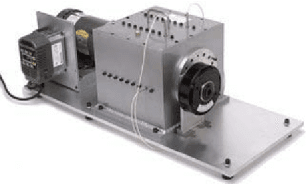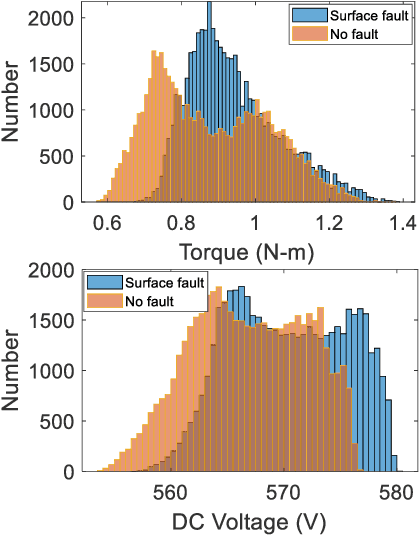Huai Wang
Uncertainty-Aware Artificial Intelligence for Gear Fault Diagnosis in Motor Drives
Dec 02, 2024



Abstract:This paper introduces a novel approach to quantify the uncertainties in fault diagnosis of motor drives using Bayesian neural networks (BNN). Conventional data-driven approaches used for fault diagnosis often rely on point-estimate neural networks, which merely provide deterministic outputs and fail to capture the uncertainty associated with the inference process. In contrast, BNNs offer a principled framework to model uncertainty by treating network weights as probability distributions rather than fixed values. It offers several advantages: (a) improved robustness to noisy data, (b) enhanced interpretability of model predictions, and (c) the ability to quantify uncertainty in the decision-making processes. To test the robustness of the proposed BNN, it has been tested under a conservative dataset of gear fault data from an experimental prototype of three fault types at first, and is then incrementally trained on new fault classes and datasets to explore its uncertainty quantification features and model interpretability under noisy data and unseen fault scenarios.
AutoPINN: When AutoML Meets Physics-Informed Neural Networks
Dec 08, 2022

Abstract:Physics-Informed Neural Networks (PINNs) have recently been proposed to solve scientific and engineering problems, where physical laws are introduced into neural networks as prior knowledge. With the embedded physical laws, PINNs enable the estimation of critical parameters, which are unobservable via physical tools, through observable variables. For example, Power Electronic Converters (PECs) are essential building blocks for the green energy transition. PINNs have been applied to estimate the capacitance, which is unobservable during PEC operations, using current and voltage, which can be observed easily during operations. The estimated capacitance facilitates self-diagnostics of PECs. Existing PINNs are often manually designed, which is time-consuming and may lead to suboptimal performance due to a large number of design choices for neural network architectures and hyperparameters. In addition, PINNs are often deployed on different physical devices, e.g., PECs, with limited and varying resources. Therefore, it requires designing different PINN models under different resource constraints, making it an even more challenging task for manual design. To contend with the challenges, we propose Automated Physics-Informed Neural Networks (AutoPINN), a framework that enables the automated design of PINNs by combining AutoML and PINNs. Specifically, we first tailor a search space that allows finding high-accuracy PINNs for PEC internal parameter estimation. We then propose a resource-aware search strategy to explore the search space to find the best PINN model under different resource constraints. We experimentally demonstrate that AutoPINN is able to find more accurate PINN models than human-designed, state-of-the-art PINN models using fewer resources.
 Add to Chrome
Add to Chrome Add to Firefox
Add to Firefox Add to Edge
Add to Edge